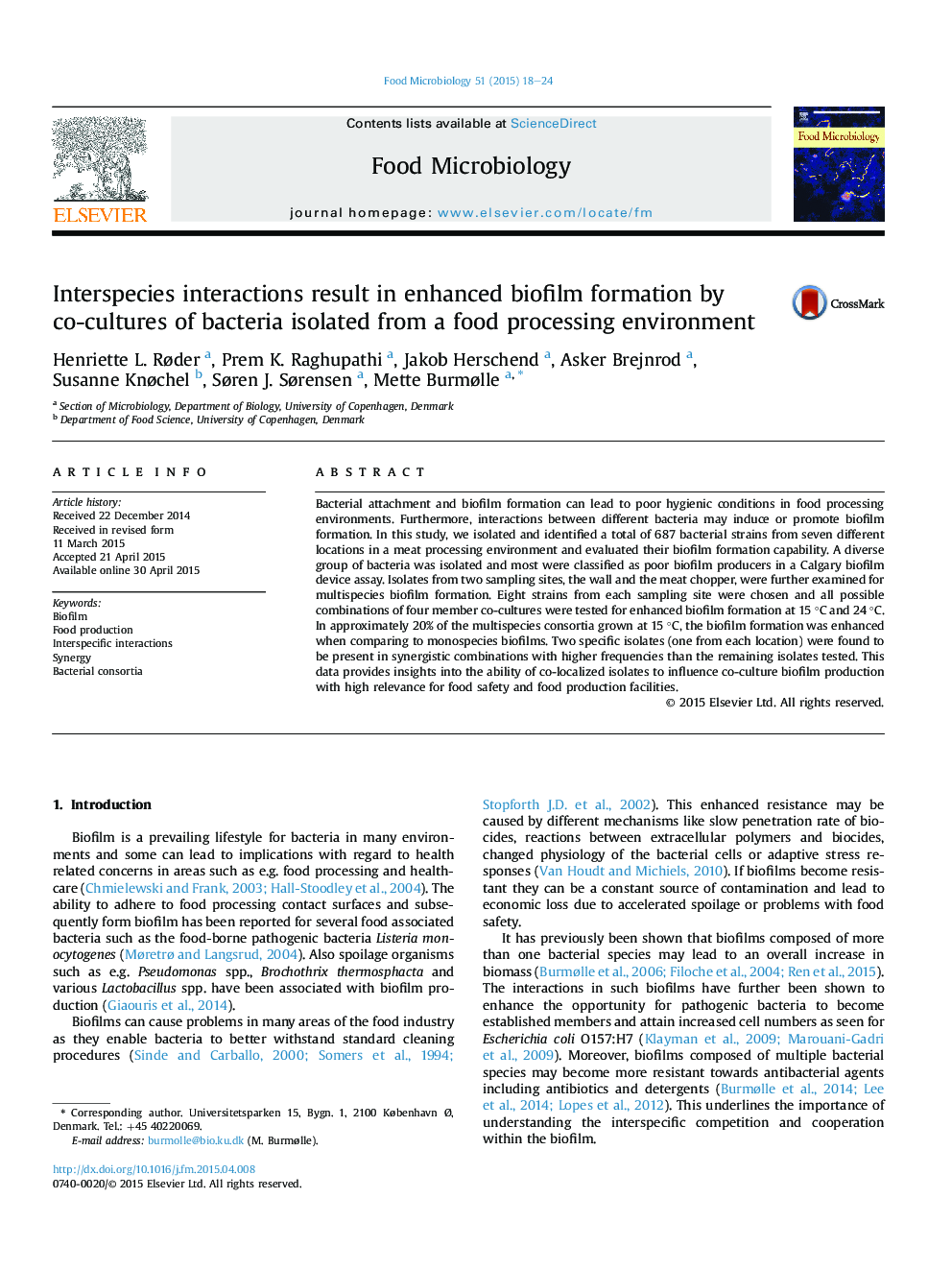| Article ID | Journal | Published Year | Pages | File Type |
|---|---|---|---|---|
| 6288473 | Food Microbiology | 2015 | 7 Pages |
Abstract
Bacterial attachment and biofilm formation can lead to poor hygienic conditions in food processing environments. Furthermore, interactions between different bacteria may induce or promote biofilm formation. In this study, we isolated and identified a total of 687 bacterial strains from seven different locations in a meat processing environment and evaluated their biofilm formation capability. A diverse group of bacteria was isolated and most were classified as poor biofilm producers in a Calgary biofilm device assay. Isolates from two sampling sites, the wall and the meat chopper, were further examined for multispecies biofilm formation. Eight strains from each sampling site were chosen and all possible combinations of four member co-cultures were tested for enhanced biofilm formation at 15 °C and 24 °C. In approximately 20% of the multispecies consortia grown at 15 °C, the biofilm formation was enhanced when comparing to monospecies biofilms. Two specific isolates (one from each location) were found to be present in synergistic combinations with higher frequencies than the remaining isolates tested. This data provides insights into the ability of co-localized isolates to influence co-culture biofilm production with high relevance for food safety and food production facilities.
Related Topics
Life Sciences
Agricultural and Biological Sciences
Food Science
Authors
Henriette L. Røder, Prem K. Raghupathi, Jakob Herschend, Asker Brejnrod, Susanne Knøchel, Søren J. Sørensen, Mette Burmølle,
